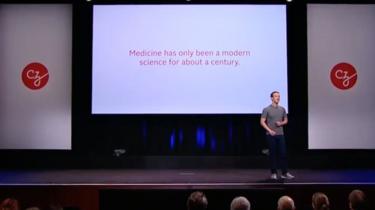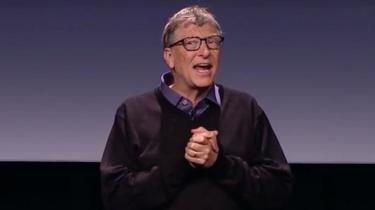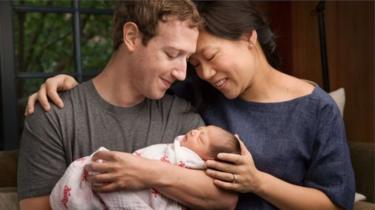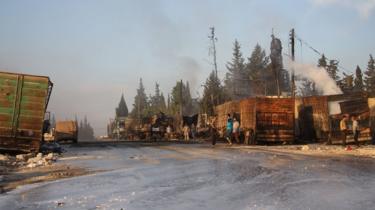As part of efforts to cushion the harsh effects of the current
economic recession, the governor of Anambra state, Willie
Obiano, yesterday, announced the immediate suspension of
sale of emblems, collection of wheel barrow tax and hawkers
permit in all parts of the state. Governor Obiano announced
this in a broadcast entitled ‘Rising from the brink,’ yesterday
September 21st.
He said his administration had lowered Okada and Keke
levies to N50 and N200 daily respectively to cushion the
effect of the recession.
“I am happy to announce to you that I have come up
with a stimulus package that will ease the pain of the
recession and help our dear state bounce back to
prosperity. I want to assure you that the government
of Anambra State is fully aware of the difficulties you
are going through in your families, in your businesses
and in your various communities . I wish to assure
you that you are not alone. I feel your pain. Our
country’s painful journey into the current recession is
fairly known to us. The events that triggered this
decline are very well documented in the public
domain. I wish to assure you that after a careful study
of the situation,I am more convinced now than ever
before that with our fundamentals, our infinite
capacity to come back from deficits and our implicit
faith in God, our story should be different in Anambra
State.
Consequently, our intervention which comes in four
key areas which are tax relief programme, special
intervention programmes for Small and Medium
Enterprises, MSMEs and Large Enterprises, social
intervention programme for low income households
and intervention in infrastructure-for-jobs. The
objective of the tax relief programme is to evaluate
existing taxes, levies and fees in the state and
introduce some waivers and in some cases, scrap
the collection of some illegal levies imposed on our
people to cushion the impact of the recession on
households in the state. Next is the special
intervention programme for Small and Medium
Enterprises, MSMEs and large enterprises. This
sector of the economy accounts for over 800,000
jobs in Anambra State today. These businesses are
suffering from the acute drop in the supply of foreign
exchange at the moment and are left with two
options; scale down their operations or shut down
completely. My role as your governor is to envisage
challenges and provide solutions that will ensure a
speedy comeback from difficult situations that
require the power and might of a state government.
This is what my administration has done in the past
two years through Anambra Small Business Agency.
This agency is a very important institution I created to
serve as a catalyst to our domestic economy. So far,
ASBA has effectively distributed the sum of N1.5bn
as start-up capital to many SMEs and MSMEs in
Anambra State. These funds are part of the N2bn that
the Central Bank of Nigeria, CBN, made available to
states about two years ago to help stimulate local
entrepreneurship across the country.”he said
Welcome to Uche Ezuma's blog
News, Events, Entertainment, Lifestyle, Fashion, Beauty, Inspiration and yes... Gossip! *Wink*
Welcome to Uche Ezuma's blog
News, Events, Entertainment, Lifestyle, Fashion, Beauty, Inspiration and yes... Gossip! *Wink*
Thursday, 22 September 2016
Lionel Messi: Barcelona striker ruled out for three weeks
Lionel Messi will be out for three weeks after suffering a groin strain in Barcelona's draw with Atletico Madrid.
The striker went off on 59 minutes on Wednesday after a Diego Godin tackle.
He was forced to miss Argentina's World Cup 2018 qualifier against Venezuela earlier this month with a groin injury, but has played in all five La Liga games for his club this season.
The Argentine could return for Barca's Champions League tie with Manchester City on 19 October.
Prior to that tie, Messi will be ruled out of games against Borussia Monchengladbach in the Champions League, Sporting Gijon and Celta Vigo in La Liga, and World Cup qualifiers against Peru and Paraguay.
Sergio Busquets was also forced off with injury in the second half of Wednesday's game as Angel Correa's equaliser cancelled out Ivan Rakitic's opener at the Nou Camp.
DNA hints at earlier human exodus from Africa
Hints of an early exodus of modern humans from Africa may have been detected in living humans.
Present-day people outside Africa were thought to descend from a group that left their homeland 60,000 years ago.
Now, analysis of nearly 500 human genomes appears to have turned up the weak signal of an earlier migration.
But the results suggest this early wave of Homo sapiens all but vanished, so it does not drastically alter prevailing theories of our origins.
Writing in the academic journal Nature, Luca Pagani, Mait Metspalu and colleagues describe hints of this pioneer group in their analysis of DNA in people from the Oceanian nation of Papua New Guinea.
After evolving in Africa 200,000 years ago, modern humans are thought to have crossed through Egypt into the Arabian Peninsula some 60,000 years ago.
Until now, genetic evidence has shown that every non-African alive today could trace their origins to this fateful dispersal.
Yet we had known for some time that groups of modern humans made forays outside their "homeland" before 60,000 years ago.
Fossilised remains found at the Qafzeh and Es Skhul caves in Israel had been dated to between 120,000 and 90,000 years ago.
Then in 2015, scientists working in Daoxian, south China, reported the discovery of modern human teeth dating to at least 80,000 years ago.
An additional piece of evidence recently came from traces of Homo sapiens DNA in a female Neanderthal from Siberia's Altai mountains. The analysis suggested that modern humans and Neanderthals had begun mixing around 100,000 years ago - presumably outside Africa.
Child in Papua New GuineaImage copyrightARIS MESSINIS/GETTY IMAGES
Image caption
The faint signature of an earlier out of Africa migration may be found in people from Papua New Guinea
In order to reconcile this evidence with the genetic data from living populations, the prevailing view advanced by scientists was of a wave of pioneer settlement that ended in extinction.
But the latest results suggest some descendents of these trailblazers survived long enough to get swept up in the later, ultimately more successful migration that led to the settling of Oceania.
"The first instance when we thought we were seeing something was when we used a technique called MSMC, which allows you to look at split times of populations," said co-author Dr Mait Metspalu, director of the Estonian Biocentre in Tartu, told BBC News.
His colleague and first author Dr Luca Pagani, also from the Estonian Biocentre, added: "All the other Eurasians we had were very homogenous in their split times from Africans.
"This suggests most Eurasians diverged from Africans in a single event... about 75,000 years ago, while the Papuan split was more ancient - about 90,000 years ago. So we thought there must be something going on."
It was already known that Papuans, along with other populations from Oceania and Asia, derive a few per cent of their ancestry from Denisovans, an enigmatic sister group to the Neanderthals.
The researchers tried to remove this component, but were left with a third chunk of the genome which was different from the Denisovan segment and the overwhelming majority which represents the main out of Africa migration 60,000 years ago.
Qafzeh remainsImage copyrightSCIENCE PHOTO LIBRARY
Image caption
Fossil evidence from Israel, like this individual from Qafzeh cave, suggests modern humans were already living outside Africa at least 90,000 years ago
Daoxian teethImage copyrightS XING, X-J WU
Image caption
Teeth from Daoxian suggest Homo sapiens had reached southern China by at least 80,000 years ago
"This third component had intermediate properties which we concluded must have originated as an independent expansion out of Africa about 120,000 years ago," Dr Pagani told BBC News.
"We believe this makes up at least 2% of the genome of modern Papuans."
In a separate paper in the same edition of Nature, Prof David Reich and Swapan Mallick, both from Harvard Medical School, along with colleagues analysed 300 genomes from 142 different populations around the world.
They found no evidence of substantial ancestry from an early African exodus in Papuans and other related populations such as indigenous Australians. They conclude that, if the genetic legacy of such a migration survives in these populations, it can't comprise more than a few per cent of their genomes.
A similar conclusion is reached in a third study on the genomes of indigenous Australian by the University of Copenhagen's Eske Willerslev and Anna-Sapfo Malaspinas, along with colleagues.
Commenting on the Reich Lab study, Dr Metspalu told BBC News: "They do not detect an early Out of Africa, but they also do not reject it as long as it is just a few per cent in modern humans."
Dr Pagani added: "All three papers all reach the same conclusions. That in Eurasians and also Papuans - the majority of their genomes come from the same major migration."
Prof Chris Stringer, from London's Natural History Museum, who was not involved with the genomic studies, commented: "The papers led by Mallick and by Malaspinas favour a single exit from Africa less than 80,000 years ago giving rise to all extant non-Africans, while that led by Pagani favours an additional and earlier exit more than 100,000 years ago, traces of which they claim can still be found in Australasians.
"Unfortunately, the signs of past interbreeding with a Denisovan-like archaic population which are found at a level of about 4% in extant Australasians, according to the Malaspinas paper, complicate interpretations, as well as the possibility that there may have been yet other ancient interbreedings which are so far poorly understood."
Wednesday, 21 September 2016
Man Utd and Man City to meet in EFL Cup fourth round
Manchester rivals City and United have been drawn to face each other in the fourth round of the EFL Cup.
United saw off League One Northampton on Wednesday, while City won 2-1 at Swansea to set up the second meeting of the two teams this season following City's derby win on 10 September.
Elsewhere, West Ham will host London rivals Chelsea, while Tottenham travel to Liverpool.
Ties will be played on the week beginning 24 October.
Full draw:
West Ham v Chelsea
Manchester United v Manchester City
Arsenal v Reading
Liverpool v Tottenham
Bristol City v Hull
Leeds v Norwich
Newcastle v Preston
Southampton v Sunderland
Zuckerberg and Chan aim to tackle all disease by 2100
Facebook's founder Mark Zuckerberg and his wife Priscilla Chan have pledged $3bn (£2.3bn) to fund medical research over the next decade.
At a press conference in San Francisco, they said their ultimate goal was to "cure, prevent or manage all diseases by the end of the century".
The funds will be distributed by the Chan Zuckerberg Initiative, which they created in December 2015.
Tech leaders are increasingly turning their attention to health.
Earlier in the week, Microsoft said it intended to "solve" cancer by using artificial intelligence tools.
Google's DeepMind unit is working with the NHS to find a way to use computers to more accurately diagnose diseases.
And IBM and MIT announced a tie-up earlier this week to develop AI-based systems that could help clinicians improve the care of elderly and disabled patients.
Even so, the Chan Zuckerberg plan is marked by its ambition.
Biohub projects
Mr Zuckerberg said that at present 50 times more money was spent on treating people who are sick than on curing the diseases that would stop them getting ill in the first place, and added that this needed to change.
 Image copyrightFACEBOOK
Image copyrightFACEBOOK
He outlined three principles that will guide the couple's investments:
- to bring scientists and engineers together
- to build tools and technology that advance research
- to grow the movement to fund more science around the world
Ms Chan added that they had already committed $600m to creating a new research centre called the Biohub, which will bring together engineers, computer scientists, biologists, chemists and other innovators.
The Biohub will initially work on two projects.
The first is the Cell Atlas, a "map" that describes the different types of cells that control the body's major organs.
The second is the Infectious Disease Initiative, which will try to develop new tests and vaccines to tackle HIV, Ebola, Zika and other new diseases.
Mr Zuckerberg predicted that by 2100 the average life expectancy would be beyond 100 years.
But he cautioned that it would take years before the couple's fund led to the creation of new medical treatments and further time before they could be applied to patients.
 Image copyrightFACEBOOK
Image copyrightFACEBOOK
Microsoft's co-founder Bill Gates - who has funded his own health research via the Bill & Melinda Gates Foundation - appeared at the event to praise the announcement.
He described it as "very bold and ambitious" but added that "we desperately need this science".
Long-term goals
Mr Zuckerberg and Ms Chan announced in December 2015 that they planned to give away 99% of their shares in Facebook to fund good causes following the birth of their daughter.
The organisation's stated mission is to make long-term investments in work that advances human potential and promotes equality.
 Image copyrightGETTY IMAGES
Image copyrightGETTY IMAGES
They had previously announced investments in education-related start-ups.
One expert said that dealing with all disease was "clearly ambitious" but added that deep-pocketed philanthropists were defined by the fact they could take such risks.
"The Chan Zuckerberg announcement is unusual in size but is in keeping with trends amongst today's biggest donors who want to achieve transformational change, prefer funding prevention over cure and tend to invest in causes and organisations with which they have prior connections," commented Dr Beth Breeze, director of the centre for philanthropy at the University of Kent.
"Most donations reflect the 'philanthropic autobiography' of the donor and this is no exception.
"Chan is an alumni of the University of California, San Francisco.
"So, the couple will already know and trust the people who will spend the money.
"She is trained as a paediatrician and recently became a mother so is aligning her professional and personal experiences with her philanthropic priorities."
Syria war: John Kerry urges planes to be grounded
The US Secretary of State has called for all planes to be grounded in key areas of Syria to save the truce there, following an attack on an aid convoy.
In a blistering speech at the United Nations, John Kerry said the future of Syria was "hanging by a thread".
He said Monday's attack, which killed 20 civilians, had raised profound doubt over whether Russia and the Syrian government would live up to the terms of the ceasefire deal.
Moscow has denied being involved.
- Why truce was doomed to fail
- Convoy attack: What we know
- Children suffer horrors of Syria's war
- What's left after five years of war?
The Russian defence ministry now says a US drone was in the area where the aid convoy was struck.
Gen Igor Konashenkov said a Predator strike drone appeared above the convoy several minutes before it caught fire, and left the area 30 minutes later.
"We are not jumping to unfounded conclusions. Only its owners know why the drone was in the area at the right time and what kind of tasks it was pursuing there," the general said.
He did not directly accuse the US of firing on the aid convoy from a drone but pointedly said that such a drone could carry out high-precision strikes against targets on the ground.
His comments follow Mr Kerry's declarationthat Russia should stand up and take responsibility for air strikes, criticising Russia's defence ministry for changing its story.
He said he felt like Russia was in "a parallel universe" after listening to his Russian counterpart Sergei Lavrov address the council.
 Image copyrightAFP
Image copyrightAFP
The UN says it has resumed preparation for convoys of aid to Syria and hopes to deliver aid to besieged and hard-to-reach areas as soon as possible.
Monday's attack prompted the UN to suspend all aid convoys to those areas.
'Heavy blow'
Mr Kerry said flights should stop "in order to de-escalate the situation and give a chance for humanitarian assistance to flow unimpeded".
The attack had "dealt a heavy blow to our efforts to bring peace to Syria," he said.
A further attack on Tuesday night killed five medical workers for an international aid agency.
A partial truce brokered by the US and Russia lasted just a week.
Heavy air raids have continued in Syria, especially in and around Aleppo.
A senior US official told the Associated Press that the US believes "with a very high degree of confidence" that the strike was carried out by a Russian-piloted aircraft.
Speaking after the UN Security Council meeting, UK Foreign Secretary Boris Johnson said "the overwhelming responsibility for the breaches in the ceasefire that we have seen lies with the Assad regime and indeed its sponsors".
But he said, the peace process that led to the truce could be revived.
The Syrian ambassador to the UN Bashar al-Jaafari said the future of Syria would be decided by its people.
"Syria will not become another Libya or Iraq," he said. "We will never allow this."
A spokeswoman for the Syrian opposition delegation at the UN in New York told the BBC she was pessimistic about the future of the ceasefire.
"What are the Russians doing to enforce the regime or to pressure the regime to comply and not violate this agreement?
"The Russians themselves are violating this agreement," she claimed.
Syria's five-year civil war has left more than 250,000 people dead and displaced more than 11 million others.
Analysis: by Jonathan Marcus, Diplomatic correspondent, BBC News
Secretary of State John Kerry's proposal that all aircraft should be prohibited from flying over certain areas of Syria so that humanitarian aid can be delivered unhindered probably falls short of a formal no-fly zone.
Who for example might police such a zone?
Would aircraft intruding into it be shot down, and if so by whom? Managing such small parcels of air space could also be a problem - any aircraft flying into them could be many miles away in a very short space of time.
Mr Kerry's idea though is probably to be seen more as a declaratory policy: an attempt to get the Russians and Syrians - the only people likely to fly aircraft that might strike targets in these zones - to formally acknowledge that they will not do so.
Subscribe to:
Comments (Atom)